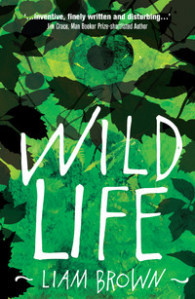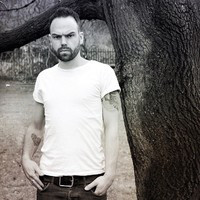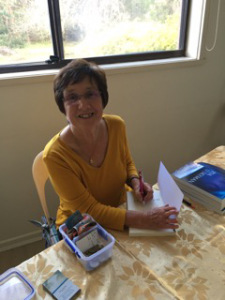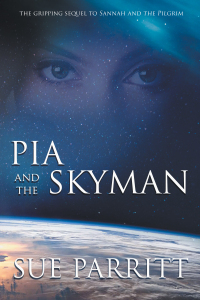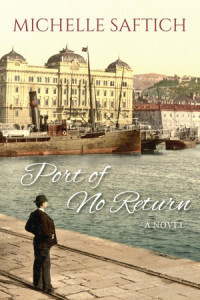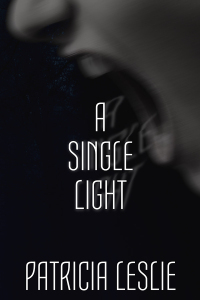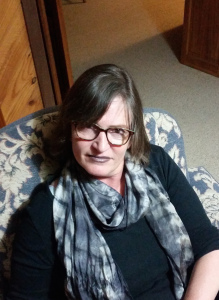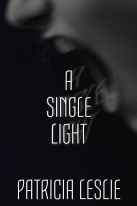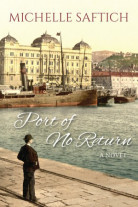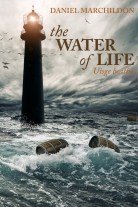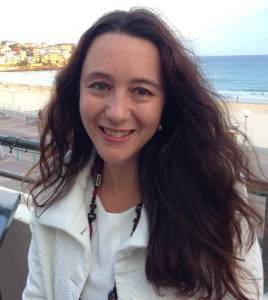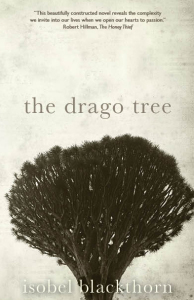Isobel Blackthorn's Blog, page 35
June 19, 2016
Liam Brown’s Wild Life
As the title suggests, Wild Life by Liam Brown is not a sober story comfortable within the confines of the ordinary and the every day. Instead, protagonist Adam Britman takes the reader on a downward spiral into a nightmarish underworld.
Adam is an accounts manager for a digital marketing company, husband, and father of two. A self-made success it would seem, only his work style and his own propensity for addiction lead him, with the assistance of his little plastic bag of white powder, headlong into alcoholism and gambling. Adam is Dionysius gone wrong. He doesn’t seem to know it but he’s on the archetypal hero’s journey, one filled with the trials and tests and tribulations of the initiatory transition to manhood. His fall is sudden, dramatic, and absolute. He loses his job, walks out on his family, and ends up, drunk, on a park bench.
He’s found by a trickster figure reminiscent of Santa Claus, and welcomed into a cult of homeless men ruled by a bully bent on back-to-earthing, boot camp style. These are not wild men. They are feral, a by-product of shallow, hedonistic, consumption-driven late-capitalism. And as the story unfolds, the reader wonders if Adam will ever find his way out.
Composed in the style of an older, wiser man looking back on a younger, foolish self, Adam’s is an acidic confession. The wry and self-admonishing prose, laced with gritty hyperbole, makes for a face-paced and intense read.
“No, the pros understand that the best way, the only way, to tell a lie is to swallow it yourself. Better still, you have to let the lie swallow you. You have to commit to it totally; to eat, breathe and shit the lie twenty-four hours a day until it becomes part of you, inscribed not only on each and every strand of your being, but on the genetic code of future generations of relatives yet to be born.”
There’s a forward drive to the writing, and a punchy, urban beat. Little space given over to introspection; Adam is not an especially thoughtful narrator. Yet this is the story’s appeal. And while Adam may not be all that reflective, there is much for the reader to reflect on, not least the nature of depravity.
It’s hard to pull off what is essentially a coming of age story, albeit of a man suffering a kind of arrested development the result of his decadent lifestyle. Brown succeeds with a story of betrayal and brutality, that serves as the antidote to Robert Bly’s Iron John.
Liam Brown is a writer, filmmaker and former-life model. His debut novelReal Monsters was published in 2015 and long-listed for the Guardian’s Not the Booker prize. He lives in Birmingham with his wife and two children.
Enjoy the trailer (I know I did)
Follow the blog tour to:-
http://randomthingsthroughmyletterbox.blogspot.com.au/
Filed under: Uncategorized Tagged: blog tour, Book review, contemporary fiction, Iron John, Legend Press, Liam Brown, Robert Bly








June 17, 2016
In conversation with Cli-fi author Sue Parritt
After reviewing Pia and the Skyman a few days ago, it’s a pleasure to speak with author, Sue Parritt and discover what motivates her to write Climate Fiction.
Starting with the obvious, tell me a little about yourself. Where were you raised? Where do you live now?
I was born and raised in Bournemouth, a seaside town in southern England. At 19 I married my childhood sweetheart, Mark, and seven months later we emigrated to Brisbane, Australia. We have one son, David. After graduating (B.A. University of Queensland 1982, with majors in English Literature, Drama and French) I worked in university libraries until taking early retirement in 2008 to concentrate on creative writing. I now live in a bayside town, Mornington, in southern Victoria, where I spend many hours writing in my beautiful garden studio built by Mark.
When did you start writing fiction?
I have always loved books. As a sickly child often away from school for weeks at a time, I read voraciously, immersion in fascinating stories enabling me to forget about illness for a while. My favourite childhood books were: David Copperfield, Great Expectations, A Christmas Carol, Jane Eyre, Wuthering Heights, Little Women, Good Wives, Tess of the D’Urbervilles and Moonfleet, a novel set not far from my home. My grandparents loved Dickens and I read most of his works from their nineteenth-century editions. My parents stressed the importance of education, provided a houseful of books, recordings of Shakespearian plays and the opportunity to discuss what I had read or heard. My father, in particular, shared his love of literature with me, often reading aloud excerpts from Shakespeare, poems and the Bible.
Writing has been a passion since my teenage years when I wrote poetry, usually reflecting my feelings about social issues or newly discovered love. During my teens and early twenties, I also entered public speaking competitions, often including snippets of my poetry in my speeches. I spoke about the threat of nuclear war, mental illness, and pacifism.
Since taking early retirement, I have written four novels: Sannah and the Pilgrim, the first of a trilogy, which draws on contemporary conservative attitudes towards climate change and refugees to present a dystopian view of a future Australia. Published by Odyssey Books in 2014, Sannah and the Pilgrim was commended in the FAW Christina Stead Award 2014. The second, Pia and the Skyman was published in April 2016, the third, The Sky Lines Alliance is scheduled to be released in October 2016. My fourth book, Safety Zone, deals with gender equality, pacifism and emerging feminism and is yet to be published.
During my employment at the Victorian College of the Arts, I was encouraged by a Senior Lecturer in Film and Television to try my hand at scriptwriting. I have since written several drafts of a feature film screenplay: Feed Thy Enemy based on my father’s unusual experiences in Naples during and after World War II. So far I have been unable to find a producer, so plan to rewrite the project as a novel. My short TV drama script, ‘Last Fling’ (based on a short story, published in ITA 1996) received First Prize in the FAW Whitelight TV Drama Award 2009 and I have also written the pilot for a TV series based on Sannah and the Pilgrim.
That’s an impressive achievement. Every author draws inspiration from other authors. Who inspires you?
I don’t have a favourite author or genre. I have always read widely, however some of my preferred authors are: Helen Garner, Margaret Drabble, Mary Wesley, Sebastian Faulks, Ian McEwan, Kate Grenville, Anita Shreve, Joyce Carol Oates, Elizabeth Jolley.
I am inspired to write by the issues facing our twenty-first century world, such as climate change, refugees, war, inequality. By creating speculative fiction that I believe could easily become fact, I hope to inspire more ordinary people to take a stand and work for a more equitable and sustainable future.
Having just read Pia and the Skyman I’m interested to hear what drove you to write it.
Pia and the Skyman, is the second book in my trilogy of a future Australia scarred by the ravages of climate change and decades of totalitarian government.
In this tale of loyalty, betrayal and duplicity, I focus on a tiny population forced to flee their home and the ramifications when a significant percentage, including hundreds of children, are refused asylum due to unacceptable difference. I present choices for the reader that are intended to be disconcerting as Pia and Kaire risk not only lengthy imprisonment to help those still suffering in apartheid Australia, but become involved in a conspiracy that if discovered, will see them wandering the universe forever stateless.
Age 20, Pia’s heritage is Pacific Islander and European. She is passionate, volatile, adventurous and unwavering in her determination to help liberate her people from generations of domination by an oppressive regime. Intelligent and savvy, she knows how to survive in a harsh world.
Age 28, Kaire is of European descent. A senior pilot from space station Skyz59, he originally came to Earth on a pilgrimage to experience the world of his ancestors but appalled by the society in which he found himself, now assists those trying to undermine the Australian government as well as those fleeing imprisonment for seditious activities. Naïve, uncomfortable with conflict, especially if it involves physical violence, Kaire still struggles to cope with Earth-life.
Pia and the Skyman took me a year to write, in sharp contrast to Sannah and the Pilgrim, which, including research, took about four years. As the second book in my trilogy, I already knew the central characters and had a good idea of the plot. I spend most weekdays (10-5) writing and occasional weekends if I have a deadline. My dream of becoming a published novelist has been realised with the publication of two novels and a third to be released soon. I took a risk in giving up paid work eight years ago to concentrate on writing but have no regrets. Writing is making retirement the best time of my life.
You can find out more about sue parritt by visiting her website. www.sueparritt.com
find my review HERE
and you can purchase pia and the skyman at AMAZON and all good booksellers
Filed under: Uncategorized Tagged: Book review, climate change, climate fiction, new release, Odyssey Books, Pia and the Skyman, Sue Parritt








June 15, 2016
Pia and the Skyman by Sue Parritt
Sue Parritt’s Pia and the Skyman is the second in her Climate Fiction trilogy, following on from Sannah and the Pilgrim, which I reviewed last year.
From the very first sentence, Pia and the Skyman engages the reader in the action, Parritt quickly and skilfully establishing the backstory carried over from Sannah and the Pilgrim. Sannah’s daughter, Pia, and her former lover, Kaire, are thrown together to help maintain ‘the women’s line,’ a resistance movement in a climate changed future, set up to help free prisoners doomed to a lifetime in underground desert prisons in what has become an ‘Apartheid Australia.’
Then there’s the matter of Kaire the Skyman and his cohort of clones languishing on a space station that was launched many centuries before with the aim of seeking another planet for humanity. Kaire is not without criticism. “How arrogant to imagine they could wreck one planet then move on to another without a backward glance.”
Lies, deceit, betrayal and tragedy along with a healthy dose of passion carry the narrative along in what turns out to be a remarkably engaging read.
Pia and the Skyman is a thoughtful, carefully considered work. Parritt’s writing is assured, confident and commanding, a steady pace maintained, the use of passive voice creating an emotional detachment befitting the stark conditions of a climate changed dystopia. “Desert desert go away…let us live another day,” the children in the playground chant.
Parritt is adept at creating an edge-of-survival atmosphere without recourse to over dramatisation. Her setting is vividly real, painted with a simple palette, and fine craftsmanship and attention to detail. Her characters are deftly portrayed and immediately recognisable.
The scenario Parritt depicts is not far removed from our own current reality, the story a metaphor for our times, and a logical extrapolations of successive Australian governments’ commitment to off-shore detention of asylum seekers in gulags. Environmental refugees are among us now. How many more will there be if we don’t amend our ludicrous dependence on fossil fuels?
There’s a deeply pacifist moral undertone that runs right through the story, carrying forward values of peace and right human relations, values elevated partly through Kaire, who in a fashion represents the higher moral ground. “Down there [in Aotearoa] his fellow settlers were doing their utmost to live a sustainable life, yet still found time to help those at risk in Australia. He wanted to shout out his admiration, tell them never to give up the struggle.”
Pia conveys values of compassion and goodwill. She acts, decisively and sometimes impulsively, exemplifying the determination and resilience of all the women who sacrifice their own safety for the sake of others in the Women’s Line – a powerful symbol of cooperation, collaboration and resistance founded on principles of solidarity and trust found amongst women in all situations of oppression and hardship the world over.
Through Pia and the Skyman Sue Parritt makes an important statement about the myopia that seems to have befallen our political leaders, especially in Australia. Humanity will be faced with harsh choices if environmental conditions become as brutal as they are in Parritt’s reality. As well they might. And I very much doubt humanity would have the capacity to respond all that differently to that of Parritt’s Apartheid Australia. On the whole we seem incapable of transcending our own selfish, divisive and hate fuelled beliefs. We’ll need a lot of goodwill and far-sightedness to avoid the scenario contained in this trilogy. Sue Parritt might as well be a soothsayer.
PIA AND THE SKYMAN CAN BE FOUND AT ODYSSEY BOOKS
Filed under: Uncategorized Tagged: Apartheid Australia, asylum seekers, climate change, climate fiction, Odyssey Books, Pia and the Skyman, Sue Parritt








Port of No Return by Michelle Saftich
There are stories that need to be told, stories sidelined, destined to languish on the periphery of our knowledge of history, stories eclipsed by bigger, more sensational stories. Until an author like Michelle Saftich comes along.
Port of No Return is a work of historical fiction, set at the end of WWII, which tracks the stories of four families as they flee their war-ravaged city of Fuime, Northern Italy, for the refugee camps in nearby Trieste, as communist Yugoslavia, under the command of General Tito, claims ownership.
Saftich leads the reader by the hand into the intimate domestic lives of Contessa and Lena and Bianca, and Ettore, Edrico and Roberto, with all of their children, and of course Nonna. Their homes are bombed, their lives under threat. When Fuime was under German occupation, many locals were required to work in the arms factories. The Partisans created lists of the traitors. When they seized control, those men were rounded up and shot, or imprisoned and tortured, and then shot. It’s a familiar story. I’m easily reminded of current times in Syria and Iraq. And to that end alone, this book is an important read.
And as we face a refugee crisis second only to World War II, in Port of No Return Saftich depicts the struggles of millions of refugees displaced across Europe and the challenges they faced finding a place, any place, to live.
The hunger, the awful conditions, and the waiting, endless waiting, are portrayed through the eyes of the characters as they scratch out a day to day existence. It is a story in which hope and despair vie for supremacy.
Saftich portrays her characters with sympathy and sensitivity in confident, down-to-earth prose. The narrative is well-crafted and well-researched. Port of No Return is a story of survival, of hope, of the tenacity of those Italian families determined to have a future. And through it Saftich opens our hearts to compassion, a commendable feat.
ODYSSEY BOOKS, 2015
Filed under: Uncategorized Tagged: Fuime, Historical fiction, Michelle Saftich, Odyssey Books, Port of No Return








A Single Light by Patricia Leslie
With A Single Light Patricia Leslie melds city grit and ethereal myth, the twin demands of Urban Fantasy, to form a perfect unity. The plot is simple, a good and evil battle to save humanity from extinction. Yet there is nothing simple in its execution, Leslie demonstrating both a depth of knowledge of her subject and writerly finesse.
Protagonist Rick Hendry, along with a federal agent, a doctor, an archeologist and a journalist, are thrust into a realm of angels and ghouls through a spate of mysterious deaths and disappearances in suburbs surrounding one of Sydney’s natural parklands. They are joined by a Hunter, one of the Afflur whose eternal task is to protect humanity from the evil Bledray. On the face of it, scarcely a unique tale, but as with most stories that comply with the strictures of genre fiction, the originality is all in the telling.
Urban Fantasy is a blend of crime and fantasy fiction. In A Single Light, Leslie displays mastery of both genres. As I was reading, I could imagine the author producing a fabulous crime novel one moment, an epic fantasy tale the next. Yet A Single Light also contains elements of horror, the reader forgiven for sensing echoes of Stephen King. It’s a fair comparison, Leslie’s storytelling, imbued with a mounting dread, and her detailed depictions of the acts of the Bledray, easily sit inside the horror genre, the quality of writing, fairly compared to King’s.
“A shift in the light; shadows moving across the room, horrendous and distorted, and then settling into a more recognisable form as they reached the windows. The curtains dropped as the window closed. The back door opened with a creak and the shadows left. Only the fan kept moving, blowing warm air and a trail of dust around the room, back and forth back and forth …”
Leslie’s characters are well-crafted and come alive on the page with all their foibles. Equally so, the otherworldly figures, the Afflur and the Bledray. Each shift in perspective clearly defined. Each scene carefully crafted.
“At once her whole form relaxed, hair-neat and pulled back in the cab of the truck-escaped its bonds to caress her shoulders, bright eyes became tired and lined, tight lips softened into a tanned face well-used to travelling at the whim of a hooked thumb and a driver’s caprice.”
The narrative is well-paced, the reader carried along by the dramatic tension established from the first page. A perfect mix of action and introspection, held together with vivid descriptions, never overdone, enshroud the reader in a reality so convincing, the very existence of A Single Light’s fantasy figures endures beyond the page.
Leslie’s prose is commensurate with the Urban Fantasy sub-genre, which demands both the earthy realism of crime and the imaginative transcendence of fantasy. It’s a fine balance, one that Leslie achieves with flair. The voice is unselfconscious, mature and poised, absent the pretensions of over-adornment, or the stilted prose the result of an overuse of Occam’s razor, one that plonks the reader in an emotional desert. Evident in Leslie’s writing, is a balance of sophistication and simplicity that will satisfy those after a work of substance while remaining immediately accessible to the page turner reader.
ODYSSEY BOOKS, FEB 2016
Filed under: Uncategorized Tagged: Cronulla, Odyssey Books, Patricia Leslie, Royal National Park, Urban fantasy








June 13, 2016
So, I’m a publicist
I never expected to be a publicist. It was not something I pursued. I fell into the role mostly because I was available, keen, and I have a passion for books. I also get the publishing industry, which helps.
I’ve been a publicist for Odyssey Books – a small press based in Canberra, Australia – for four months, but the seeds were sewn late in 2014, when I submitted my first novel to every Aussie publisher I could unearth. I found Odyssey Books on the Small Press Network website and diligently followed the submissions guidelines. I met their criteria; my book was fiction, not self-help or a field guide to birds. Trouble was, this publisher wanted the link to my Facebook page. I went and checked out my Likes and found about 342. I felt deflated. So I jumped into a very active Aussie writers group and stated my problem: my book would never be published by Odyssey Books because I didn’t have enough Page Likes. (Well – who knew if that were true? – Not me)
There were complaints and outrage and supportive comments and I responded to them all and by the end of the day I had another 100 Likes on my Page. Thanks to all the writers who did that for me!
And it must have worked. I got an offer. And so began my own relentless book promo: Blogging, Tweeting, Sharing, sending out review requests, a launch tour. I didn’t know if I was any good at it. I still don’t. I just put one foot in front of the other, and keep on plugging away, trying out this and then that and building on what works. Sometimes feeling a draft as some book marketing hot shot whizzes by.
Today, I find I’m doing exactly the same for a bunch of other authors. I write press releases. I send out book review tranches. I offer advice. I help build social media platforms. I’m the number one cheerleader. I buzz with ideas. And I’m awash with frustration (please please join then share your review on Goodreads – yes people do look; and on Amazon – .com preferably, yes yes that would be a big help.) My job more than fills the allotted weekly hours; it infuses each and every day.
It helps that I’m passionate about the publisher I work for. Michelle Lovi has vision, a commitment to quality fiction and she creates fabulous book covers. (I would say all that, wouldn’t I? There’s only one way to see if it’s true – buy one of Odyssey’s books!)
I gaze at other book publicists in awe. They all seem so young and energetic. And well-placed with tons of connections. Some with big budgets. I’m 54, and a very part time publicist slowly building the essentials. I’m also at work on another novel (my fourth) and I review books. ‘You should get out more,’ my daughter tells me.
Filed under: Uncategorized Tagged: book industry, book promo, Odyssey Books, publicist, publishing








June 10, 2016
Featuring Michelle Saftich
Today I’m in conversation with Michelle Saftich, author of the acclaimed novel Port of No Return (Odyssey Books, 2015), a work of historical fiction I reviewed earlier this year.
Where were you born and raised?
I was born and raised in Brisbane, Australia. I have also spent time living in Sydney and Osaka, Japan. What I love most about each city – I love Brisbane’s warm weather, Sydney’s harbour and Osaka’s food!
So, where are you now?
I am still in Brisbane, living with my husband, who is an accomplished musician and singer/songwriter and who helped to edit the first drafts of my book, and my two school-aged sons; not to mention my demanding black cat!
When you you decide you wanted to be a writer?
By the age of six, I knew I wanted to be a published author and that dream never wavered. As soon as I could read, I fell in love with books and wanted to write them.
My grandmother is a playwright and I have always felt a connection with her. As a young girl, I would sneak into her writing area, ogling her huge, heavy typewriter, scanning all her press clippings about her plays and I longed to have such a space of my own. I can recall sitting on her lap at age nine, reading to her an eight-page story I had written, just for fun.
Authors love books. What are some of your favourites?
I have read broadly, exploring a range of genres and authors. As a younger reader, I loved historical fiction and romance. I treasure such books as “To Kill a Mockingbird” and Jane Austen novels and I loved Wild Swans by Jung Chang. I have enjoyed biographical novels about Marie Antoinette and early writers such as Mary Shelley. I like stories about strong, inspiring women and works that inform and educate as well as entertain.
What inspired you to write port of no return?
I was greatly moved my grandparents’ true story of having to flee their Italian town, with their children, at the end of World War II. At that time, their city, Fiume, a beautiful portside city, was taken and absorbed into Yugoslavia – lost to Italy forever.
In May, 1945, Yugoslav Partisans came down the hills into the city of Fiume and began rounding up those Italians, known to have worked with the Germans during the war, and executing them.
My father, a great oral storyteller, had told my sister and I a few snippets of his parents’ plight. He was fond of telling how his mother had stood up to the Yugoslav Partisans when they had come knocking on their door, seeking to arrest and kill her husband. She had shown great bravery in telling them that her husband had left her for another woman, and was not at home.
Inspired by these family tales, I decided to do some research about the city and came across a startling post-World War II conflict. Hundreds of thousands of Italians fled the region as the Yugoslav Army moved in, leaving behind their homes, their livelihoods, their friends.
I decided to write about their experiences.
How long did it take you to write?
It took two years to write. I talked to other Italians who had fled Fiume – ones who could remember being shot at trying to cross the town border to escape, ones who could recall the Partisans coming down the hills.
I have tried to capture their fear, their loss, their desperation – while informing readers of this little known conflict that affected so many.
Personally, it has been wonderful to write about and record my family heritage, while giving the people of this region a voice. I have felt honoured to tell their story and have loved every word of it.
There’s a whisper of a sequel. To find out why, read Port of No Return, and, like me, you’ll be left wanting more.
You can find Port of No Return at Odyssey Books
at Amazon and all good booksellers.
Meanwhile, here’s how you can connect with Michelle:
Website https://michellesaftich.com/
Facebook Page https://www.facebook.com/msaftich/?fref=ts
Twitter @MichelleSaftich
Goodreads https://www.goodreads.com/book/show/26102499-port-of-no-return
Filed under: Uncategorized Tagged: Australian women authors, Author interviews, Fiume, Goodreads, Historical fiction, Michelle Saftich, Odyssey Books, Port of No Return, refugees, women authors, WWII, Yugoslavia








June 8, 2016
Ghosts Like Us, Inez Baranay
Lately, I’ve started getting into book reviewing. I hadn’t expected to enjoy it so much and it’s becoming something of a compulsion.
Sometimes I post my reviews here on my website. I reviewed Inez Baranay’s Ghosts Like Us, for Newtown Review of Books.
“Ghosts Like Us is a poetic, ambiguous and subversive exploration of the nature of history and remembering.” Read the whole review here: http://newtownreviewofbooks.com.au/2016/06/09/inez-baranay-ghosts-like-us-reviewed-isobel-blackthorn/
If you are of an intellectual bent, you love the 1980s for its second-wave feminism, or you are into the processes artists go through in their acts of creation, then this is the book for you. I thoroughly enjoyed it.
Filed under: Uncategorized Tagged: 1980s, Berlin, Berlin wall, Ghosts Like Us, Inez Baranay, literary fiction, Newtown Review of Books, post-punk, second-wave feminism








June 4, 2016
Chains of Sand by Jemma Wayne
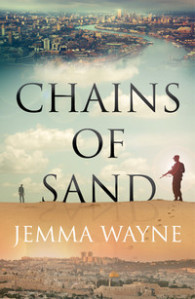 Legend Press, June 2016
Legend Press, June 2016A work of contemporary fiction, Chains of Sand by Jemma Wayne is a timely and important portrayal of a realm of Middle Eastern conflict made familiar to most of us in the West through the distorted lens of news and current affairs coverage, a lens too often smeared with the Vaseline of prejudice, its purported wide angle little more than a pinhole. Perhaps it is only through the lived experience of people to some degree inside the context of Israeli/ Palestinian tensions and conflict that our awareness can broaden and deepen. Set against the backdrop of another looming conflict with Gaza,
Chains of Sand offers the reader a chance to share in the lives of an endearing cast of characters rendered as vivid and as real as the reader’s intimate friends, and through this cast, to consider perspectives from within what is widely considered the aggressor nation: Israel.
The architecture of the narrative is in essence simple, two young men hankering for a better life: Iraqi-born Israeli, Udi, craving a life in London; and Jewish Londoner, Daniel, bent on moving to Tel Aviv. Neither is religious, they represent a generation pulling away from orthodoxy, yet they are each influenced by and wrestle with the beliefs, customs and rituals of the Jewish faith as it impacts on their lives through their families and friends.
The story begins with Udi, fresh from the army, unemployed, listless and frustrated, his application to reside in Britain a source of constant anxiety and hope. Despite the third person narration, the reader is beside him, in his home with his mother and father, out in the streets of Ramat Gan with its cosmopolitan vibe, caught in the mayhem of the traffic, hanging out with his friends on the beach or in a cafe, and sharing in his flashback memories of fighting in Gaza. Udi is a young man haunted and determined to rise above it.
He is also is a man loyal to the Israeli state and keen to defend it. Yet through lessons learned from his own troubled past, Udi understands the need to keep the human actor present in descriptions of conflict. In questioning an army friend’s statement that his brother was killed by a bomb, and not a bomber, Udi states, “The semantics allow him to hold a whole people to blame and salvage at least some opportunity to put things right: a tooth for a tooth.” Yet it is Udi’s unreflective habit of rolling bits of shrapnel in his palm, “like prayer beads,” that confronts the reader with the realisation that in Israel, war is in danger of replacing religion as a system of faith.
The reader is soon in London and introduced to the headstrong, self-analytical, angst-filled and not entirely likeable city banker Dan, the narrative switching to first person to fully exploit his egocentric introspections. Through Dan, Judaic believing and practice in London in all its variants is depicted with wit and warmth, no better conveyed than when Dan describes his father’s consternation over changing attitudes to the customs of faith, the same father who helped found a cross-cultural London dialogue group. “Perhaps this is why he speaks now like a man clutching desperately to a stream of water escaping from a tap that he himself turned on.”
Written in clear, unsaturated prose, the narration remains close, calm and measured throughout, the story’s horrors, tragedies and triumphs depicted with just enough detail and never overplayed. There are echoes of Howard Jacobson’s The Finkler Question, both novels delving into the complexity of being Jewish in London. Yet refreshingly, Wayne’s Dan lacks the intense and almost stereotypically neurotic introspection of Jacobson’s protagonist. Instead, and especially through the eyes of her female characters, Wayne conveys the realities that confront ordinary people struggling to exist and find work and love and fulfilment in cities prone to attack, where prejudice can turn to violence with little provocation.
Both Udi’s and Dan’s mothers reflect more orthodox perspectives, their anxieties those of any mother agonising over the welfare of the son she is about to lose. It is through the two men’s sisters and girlfriends that the reader is presented with progressive, sophisticated, complex responses to a Jewish identity in crisis. Dan’s sister Gaby is emphatic that she is British first, and Jewish second; that in matters of identity, nationality is paramount. Dan’s girlfriend, talented artist Urli, speaks of the diversity and elusiveness of truth. And Udi’s sister Avigail, wife, mother and daughter too, is a cross-cultural intellectual feminist activist campaigning for peace and taking risks with her own life to achieve it.
A parallel narrative takes the reader back in time, before the wall went up in Jerusalem, a time when a naïve young Jewish girl snuck into the Arabic quarter of the city searching for inspiration and finding love. It is an intoxicating, acutely observed depiction of the Romeo and Juliet scenario, for Dara’s love is surely forbidden, Kaseem’s just as surely doomed. Here, Chains of Sand becomes almost a whispered narrative of the immutable social strictures that separate Muslim Arab from Jew.
The Muslim Arab perspective is again explored with the softest of brushstrokes in Dan’s girlfriend, Safia, who serves as his moral stanchion, quietly goading, quizzing, testing, as he defends his prejudices, and his decisions.
The female characters in Chains of Sand are positioned somewhat in the shade cast by the male protagonists, yet this shade is not obscure. It is shade made all the richer for being beyond the harsh rays of the stark either/or realities of Udi and Dan. In the shade are the textures, the nuances, the depths, and the deeper the reader ventures into its recesses, the closer she is to the truth.
Chains of Sand is a brave book, one that reveals the complexities of being Jewish and of being Israeli, of identifying with Israel as a nation, as a concept, as a home for the Jewish people, complexities hampered by a modern zeitgeist that is wont to be blindly anti-Israel. Chains of Sand challenges a viewpoint unable to see a polyglot cosmopolitan nation struggling to grow and understand itself, whilst fully cognizant that this same nation is blinkered by the politics of aggression towards its neighbours, a nation apt to stumble into overreaction through fear of losing itself. It does the reader no harm to explore perspectives born of the lived experience of those we may apparently oppose. For that alone, I salute the author.
(Review copy kindly provided by the publisher via NetGalley. A version of this review will appear in the August edition of Shiny New Books, UK)
Filed under: Uncategorized Tagged: Chains of Sand, Jemma Wayne, Legend Press








June 3, 2016
The Drago Tree book blitz
There’s a book blitz going on! Of The Drago Tree
Big thank you to all the bloggers involved. You can find me on:
The Book Adventures of Emily – http://thebookadventuresofemily.blogspot.com/2016/06/book-blitz-drago-tree-by-isobel.html
Indy Book Fairy – http://paranormalbookfairy.blogspot.com/2016/06/the-drago-tree-by-isobel-blackthorn.html
my name is Sage – http://sageadderley.blogspot.com/2016/06/book-blitz-drago-tree-by-isobel.html
Celtic Lady’s Book Reviews – http://celticladysreviews.blogspot.com/2016/06/the-drago-tree-by-isobel-blackthorn.html
Literary Lunes – http://www.literarylunespublications.com/book-blitz-the-drago-tree-by-isobel-blackthorn-iblackthorn/
Hogwash – http://hogwashthirteen.blogspot.com/search/label/mainline
Freda Hansburg – http://fredahansburg.weebly.com/blog/book-spotlight-the-drago-tree
Mello and June, It’s a Book Thang! – http://mellojune.blogspot.com/
Books are love – https://hello-booklover.tumblr.com/post/145349289565/the-drago-tree-by-isobel-blackthorn
Bound 2 Escape – http://bound2escape.com/blitzes/book-blitz-the-drago-tree-by-isobel-blackthorn/
Filed under: Uncategorized Tagged: Book blitz, book promo, literary fiction, Odyssey Books, The Drago Tree









